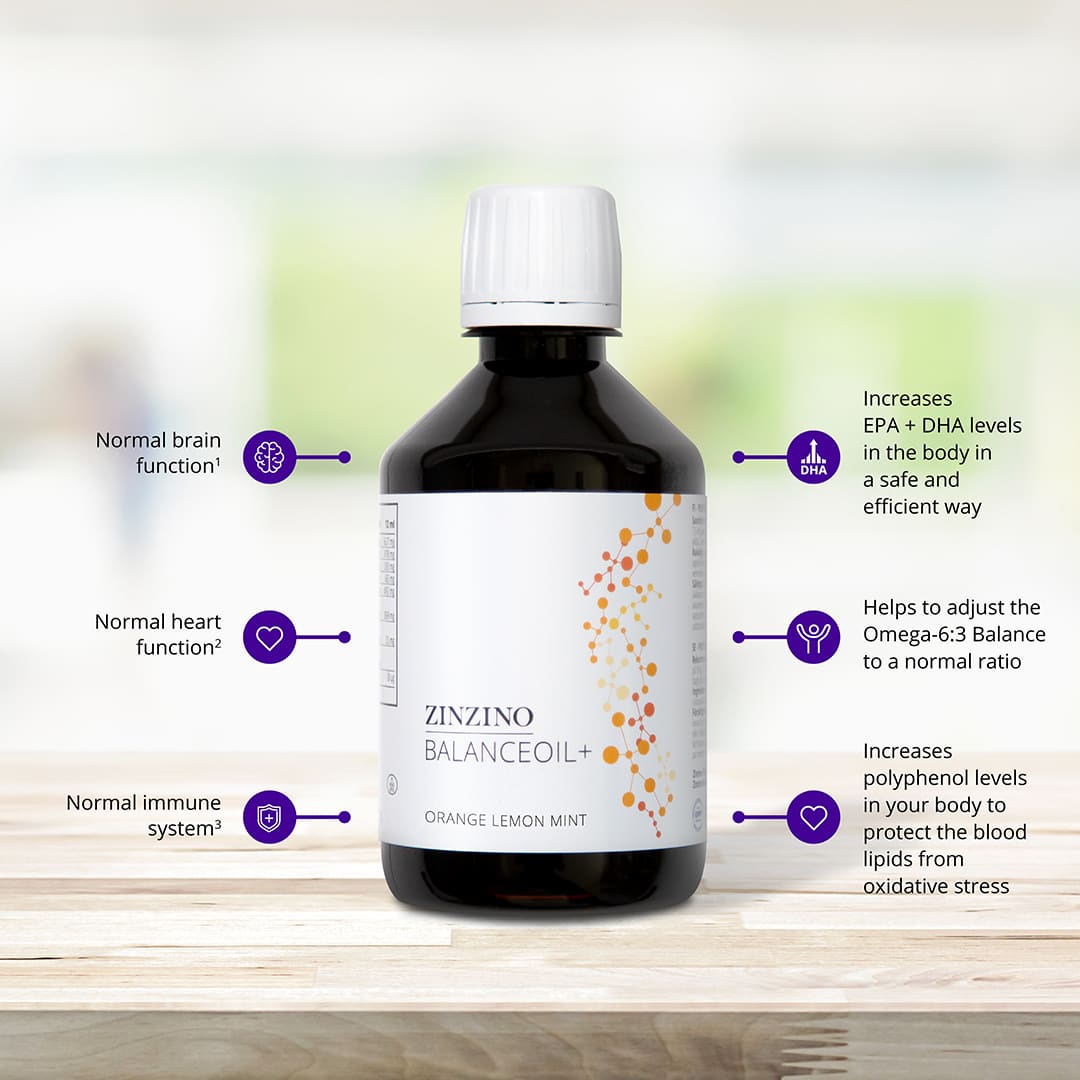Omega-3 Fatty Acids and Cancer:
Exploring the Potential Benefits
In this article, we delve into the potential benefits of omega-3 fatty acids’ roles in cancer prevention and treatment and the importance of maintaining a balanced ratio of omega-6 to omega-3 in your diet.

Omega-3 fatty acids have gained significant attention in recent years for their potential health benefits, including their possible roles in cancer prevention and treatment.
While further research is needed to fully understand their impact, emerging studies suggest that omega-3 may hold promise in the fight against cancer.
Table of Content:
-
Fighting Inflammation:The Key Role of Omega-3 Fatty Acids in Cancer Prevention and Treatment
- Maintaining a Balanced Ratio: The Importance of Achieving a Healthy Omega-6 to Omega-3 Ratio
- Understanding the Impact of Omega-3 Fatty Acids on Cancer Cells
- Inhibiting Angiogenesis:
Unveiling the Potential of Omega-3 Fatty Acids in Cutting Off Tumor Blood Supply Within - Conclusion
Disclosure: Some of the links in this article may be affiliate links, which can provide compensation to me at no cost to you if you decide to purchase a product or premier kit. These are products I’ve personally used and stand behind.
Fighting Inflammation:
The Key Role of Omega-3 Fatty Acids in Cancer Prevention and Treatment
Chronic inflammation has emerged as a significant factor in the development and progression of various diseases, including cancer.
Inflammation is a natural response by the body’s immune system to injury or infection. However, when inflammation becomes chronic, it can wreak havoc on our health, leading to the destruction of healthy cells and the promotion of tumor growth.
Fortunately, omega-3 fatty acids have garnered attention for their remarkable anti-inflammatory properties, making them potential allies in the battle against cancer.
Exploring the Link Between Chronic Inflammation and Cancer Development
Chronic inflammation can contribute to the initiation and progression of tumor formation.
It creates an environment conducive to the growth and spread of cancer cells, and it can even hinder the body’s ability to recognize and eliminate these abnormal cells.
This is where the anti-inflammatory effects of omega-3 fatty acids become particularly intriguing.

Image by kjpargeter on Freepik
Omega-3 Fatty Acids: Nature’s Anti-Inflammatory Warriors
Nature’s Anti-Inflammatory Warriors Omega-3 fatty acids, including eicosapentaenoic acid (EPA) and docosahexaenoic acid (DHA), are essential fats that cannot be produced by the body and must be obtained from our diet.
These healthy fats are commonly found in fatty fish like salmon, mackerel, and sardines, as well as in plant-based sources such as walnuts, flaxseeds, and chia seeds.
The anti-inflammatory properties of omega-3 fatty acids have been extensively studied, and evidence suggests that they can play a vital role in modulating the body’s inflammatory response.
By inhibiting the production of pro-inflammatory molecules and promoting the synthesis of anti-inflammatory substances, omega-3s help restore the delicate balance required for a healthy immune response.
Modulating Signaling Pathways: Omega-3s and Cancer Cell Behavior
Omega-3s and Cancer Cell Behavior Studies have shown that omega-3s can reduce the production of inflammatory mediators such as prostaglandins, cytokines, and leukotrienes, which are known to play a role in cancer development.
By inhibiting these inflammatory molecules, omega-3 fatty acids help create an environment that is less favorable for tumor growth and metastasis (the process by which cancer cells spread from the original tumor to other parts of the body, forming secondary tumors).
Moreover, omega-3s have been shown to modulate several signaling pathways involved in cancer cell proliferation, survival, and apoptosis (programmed cell death).
They can influence the expression of genes related to inflammation, angiogenesis, and cell growth, thereby exerting a regulatory effect on cancer cells.

Boosting the Immune System: Omega-3s and Enhanced Immune Response
In addition to their direct impact on inflammation, omega-3 fatty acids also interact with the body’s immune system.
They can enhance the activity of immune cells, such as natural killer (NK) cells, which play a critical role in identifying and eliminating cancer cells.
By boosting the immune response, omega-3s may enhance the body’s ability to detect and destroy cancer cells before they can establish tumors.
It’s important to note that while omega-3 fatty acids show promise in mitigating chronic inflammation and its potential impact on cancer, they should not be considered as standalone treatments for cancer.
Cancer is a complex disease with multifaceted causes and mechanisms, and a comprehensive approach to treatment is necessary.
But the anti-inflammatory properties of omega-3 fatty acids, along with their ability to modulate signaling pathways and enhance immune function, make them intriguing candidates in the fight against cancer.

Maintaining a Balanced Ratio:
The Importance of Achieving a Healthy Omega-6 to Omega-3 Ratio
To fully appreciate the benefits of omega-3 fatty acids, it’s important to consider the ratio of omega-6 to omega-3 in your diet. Unfortunately, Western diets often feature an imbalance, with excessive consumption of omega-6 fatty acids.
This disparity can promote inflammation and potentially contribute to various health conditions, including cancer.
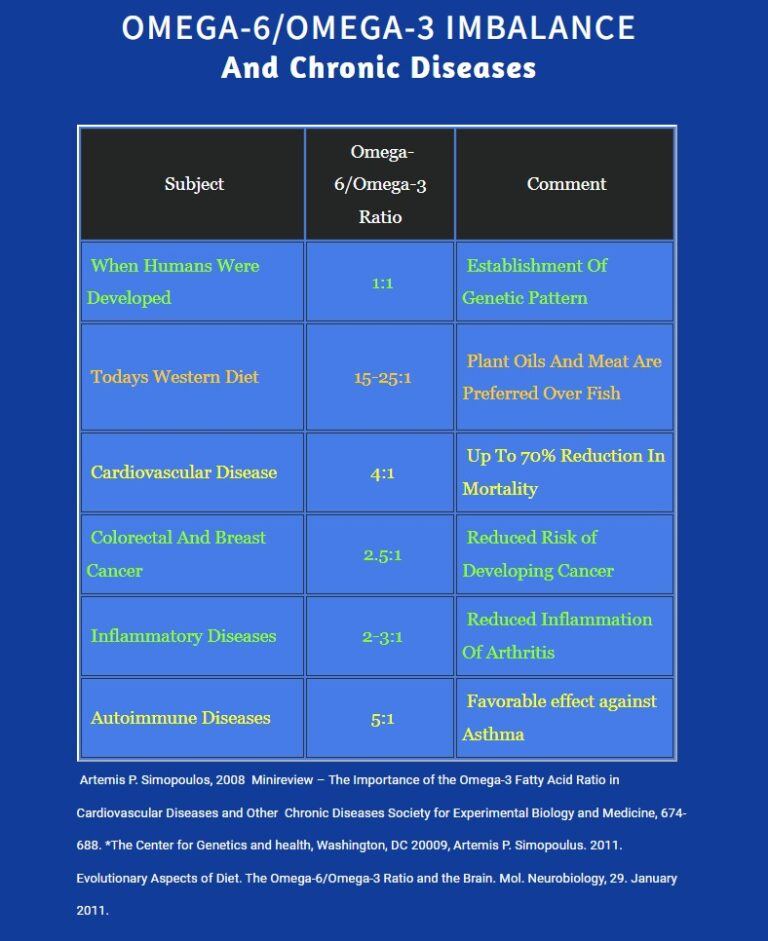
Achieving a Healthy Omega-6 to Omega-3 Ratio
To maintain a balanced ratio, aim for an omega-6 to omega-3 ratio of around 3:1.
This can be achieved by reducing the intake of foods rich in omega-6 fatty acids, such as processed vegetable oils, and increasing your consumption of omega-3-rich foods.
Incorporating fatty fish like salmon and mackerel, as well as walnuts, flaxseeds, and chia seeds into your meals can help boost your omega-3 intake.
The Impact of BalanceOil+ and the Balance Concept
However, even individuals who eat healthily may struggle to achieve a healthy omega-6 to omega-3 ratio.
Testing has shown that most people have imbalanced ratios, indicating the ongoing challenge of maintaining a healthy balance.
One product that can help in this regard is BalanceOil+ from the Swedish direct sales company Zinzino.
The Balance Concept offered by Zinzino is based on a subscription model, recognizing that achieving and maintaining a healthy balance takes time and ongoing effort. The Balance test, which uses a dry blood spot test (DBS), allows individuals to measure their before and after results after using the oil for 120 days.
I personally use the BalanceOil+ daily and went from a ratio of 20:1 to a ratio of 2,4:1 using the Balanceoil+ and the Xtend Immunebooster system.
How To Get A Healthy Omega 6 To Omega 3 Ratio
Get A Balanced Omega 6:3 Ratio Close To 3:1 or lower in 120 days.
With The Test-Based BalanceOil+ From Zinzino, You can measure your before and after results!
Edit Template
Edit Template
Amplifying Cancer Treatments through the Potential of Omega-3 Fatty Acids
Unleashing the Beneficial Effects of Omega-3s in Cancer Therapy
In recent years, there has been growing interest in exploring the potential synergistic effects of omega-3 fatty acids when combined with conventional cancer treatments, such as chemotherapy and radiation therapy.
Excitingly, preliminary research has hinted at the possibility of these essential fats playing a role in enhancing the effectiveness of these treatments and improving overall patient outcomes.

Anti-Inflammatory Effects: Mitigating Chronic Inflammation
The potential mechanisms through which omega-3 fatty acids may enhance cancer treatments are multifaceted.
Firstly, these essential fats possess anti-inflammatory properties, which can help counteract the chronic inflammation often associated with cancer.
By mitigating inflammation, omega-3s may create a more favorable environment for treatment interventions, allowing for improved response and better tumor control.
Anti-Angiogenic Effects: Restricting Blood Supply to Tumors
Furthermore, omega-3 fatty acids have been shown to exert anti-angiogenic effects, inhibiting the formation of new blood vessels crucial for tumor growth and metastasis.
By targeting the tumor microenvironment and impeding its blood supply, omega-3s may sensitize cancer cells to the effects of chemotherapy and radiation therapy, potentially enhancing their effectiveness.
Modulating Cell Signaling: Influencing Cancer Cell Behavior
Additionally, these remarkable fatty acids have been found to modulate various signaling pathways involved in cancer cell behavior, as discussed later in this article.
By regulating cell growth, apoptosis, and gene expression, omega-3s may influence the tumor’s response to treatment and enhance the eradication of cancer cells.
Optimizing the Approach: Considering Dosage, Timing, and Individual Variations
It is important to note that while early evidence is promising, the optimal incorporation of omega-3 fatty acids into cancer treatment regimens is still being investigated.
Factors such as dosage, timing, and individual variations in response need to be carefully considered.
Therefore, it is essential for individuals undergoing cancer treatment to consult with their healthcare providers to determine the most appropriate and personalized approach.

Integrating Omega-3-Rich Foods and Supplements: A Natural Adjunct
As new discoveries emerge, there is growing interest in including foods or supplements rich in omega-3 fats as part of a comprehensive treatment plan. Adding sources of omega-3 fatty acids to a well-balanced diet could potentially complement conventional cancer treatments and offer natural benefits.
Some products in the market provide a holistic approach to omega-3 supplementation. For instance, Zinzino, a Swedish company, offers BalanceOil+ with tests that combine omega-3 fatty acids and polyphenols. This combination aims to improve absorption and achieve a healthy balance between omega-6 and omega-3 fats.
While more research is required to confirm the effectiveness of these products in cancer treatment, they present a promising avenue worth exploring and discussing with healthcare professionals.
The potential of omega-3 fatty acids to enhance cancer treatments holds great promise. Although further research is necessary to fully understand this connection, early evidence suggests that omega-3s may contribute to better treatment outcomes.
By working together, researchers, healthcare providers, and individuals undergoing cancer treatments can uncover the best ways to incorporate omega-3s into comprehensive treatment plans, ultimately advancing the fight against cancer.
How To Get A Healthy Omega 6 To Omega 3 Ratio
Get A Balanced Omega 6:3 Ratio Close To 3:1 or lower in 120 days.
With The Test-Based BalanceOil+ From Zinzino, You can measure your before and after results!
Edit Template
Edit Template
Understanding the Impact of Omega-3 Fatty Acids on Cancer Cells
Omega-3 fatty acids are important nutrients that may influence how cancer cells behave by affecting cell signaling pathways.
These pathways allow cells to communicate and control processes like growth and programmed cell death (apoptosis).
When these pathways are disrupted, cancer can develop and progress. However, studies suggest that omega-3 fatty acids, such as EPA and DHA, can potentially promote apoptosis in cancer cells, leading to their destruction and slowing down the disease.
Cell Signaling and Cancer Development
Cell signaling is the intricate communication that happens within our cells, enabling them to respond to their surroundings and regulate processes like growth and apoptosis.
When cell signaling goes awry, it can contribute to the development of cancer.
Interestingly, research shows that omega-3 fatty acids might have a significant impact on these signaling mechanisms, potentially influencing the behavior of cancer cells.
Omega-3 Fatty Acids and Apoptosis
Apoptosis, or programmed cell death, is a vital process that maintains a balance between cell growth and elimination in the body.
Cancer cells often avoid apoptosis, allowing them to evade cell death and multiply uncontrollably.
Omega-3 fatty acids have been studied for their ability to promote apoptosis in cancer cells, offering a potential strategy to inhibit tumor growth and limit disease progression.
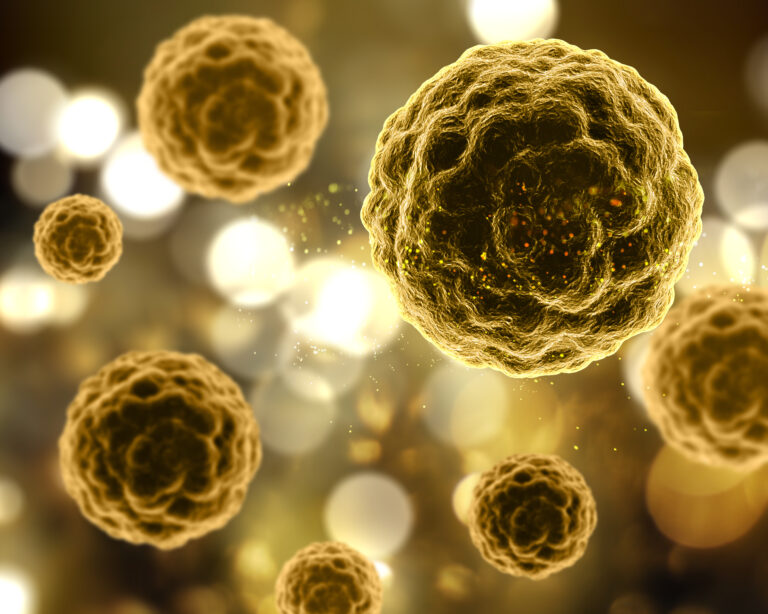
Image by kjpargeter on Freepik
Modulating Signaling Pathways
Omega-3 fatty acids have been found to influence specific signaling pathways in cancer cells.
One such pathway is the PI3K/Akt/mTOR pathway, which plays a role in cell growth, survival, and proliferation. Omega-3s can modulate this pathway, resulting in reduced activation of Akt and mTOR. By doing so, they inhibit cancer cell growth and promote apoptosis.
Another pathway affected by omega-3 fatty acids is the NF-kB pathway. NF-kB is a transcription factor that controls the expression of genes involved in inflammation, cell survival, and immune response.
Dysregulation of NF-kB has been linked to various cancers. Omega-3s can suppress NF-kB activation, leading to decreased expression of genes associated with tumor promotion and inflammation, thereby influencing cancer cell behavior.
Omega-3 fatty acids can also impact other signaling pathways, such as the MAPK/ERK pathway and the Wnt/β-catenin pathway. These pathways are crucial for cell proliferation and differentiation.
By modulating them, omega-3s may exert control over cancer cell growth and differentiation, potentially impeding tumor progression.
Gene Expression and Cancer Cell Behavior
Moreover, omega-3 fatty acids can influence gene expression related to inflammation, angiogenesis (formation of new blood vessels to support tumor growth), and metastasis (spread of cancer cells to distant sites).
By affecting gene expression, omega-3s can regulate the production of proteins and factors that influence cancer cell behavior, creating an environment less favorable for tumor growth and spread.
Complex Interactions and Individual Differences
Understanding how omega-3 fatty acids influence cell signaling pathways is a complex area of research. The effects can vary depending on the type of cancer, the specific signaling pathways involved, and individual differences in response.

Image by kjpargeter on Freepik
Inhibiting Angiogenesis:
Unveiling the Potential of Omega-3 Fatty Acids in Cutting Off Tumor Blood Supply
Angiogenesis is the process of forming new blood vessels in the body.
The growth and spread of tumors heavily rely on angiogenesis, the formation of new blood vessels.
This process provides the tumor with essential nutrients and oxygen, enabling its survival and allowing it to grow and metastasize.
Inhibition of angiogenesis has emerged as a promising strategy in the fight against cancer, and omega-3 fatty acids have shown remarkable potential in this area.
Angiogenesis: A Key Factor in Tumor Growth
Angiogenesis is tightly regulated by a complex interplay of signaling molecules, including growth factors and cytokines.
Disruptions in this delicate balance can tip the scales in favor of tumor growth, leading to the development of a dense network of blood vessels that sustain the malignancy.
Omega-3 Fatty Acids and Angiogenesis Inhibition
Omega-3 fatty acids, such as eicosapentaenoic acid (EPA) and docosahexaenoic acid (DHA), have garnered attention for their ability to interfere with the angiogenesis process.
These essential fats possess unique bioactive properties that may help hinder the progression of cancer by inhibiting angiogenesis.
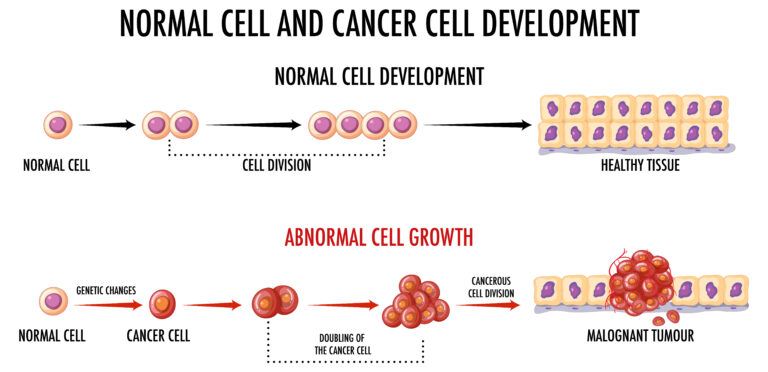
Image by brgfx on Freepik
Downregulation of Pro-Angiogenic Factors
Studies have shown that omega-3 fatty acids can hinder the growth of blood vessels that support tumors in different ways.
One mechanism involves downregulating pro-angiogenic factors like vascular endothelial growth factor (VEGF) and matrix metalloproteinases (MMPs).
These factors play pivotal roles in promoting the growth of blood vessels and the breakdown of the extracellular matrix surrounding the tumor, facilitating its invasion and metastasis.
By suppressing the production and activity of VEGF and MMPs, omega-3s create an unfavorable environment for angiogenesis, impeding the formation of new blood vessels that are crucial for tumor growth and survival.
Consequently, this may limit the supply of oxygen and nutrients to the tumor, potentially hampering its progression.
Modulation of Gene Expression in Angiogenesis
Moreover, omega-3 fatty acids can affect the activity of certain genes that play a role in blood vessel formation (angiogenesis). They can influence the activation of specific proteins that control gene expression, such as nuclear factor-kappa B (NF-κB) and activator protein 1 (AP-1).
By inhibiting the activation of NF-κB and AP-1, omega-3s can reduce the expression of genes that promote blood vessel growth, thus slowing down the process of angiogenesis. These actions contribute to the overall ability of omega-3 fatty acids to hinder tumor growth and the spread of cancer cells.
Enhancement of Anti-Angiogenic Factors
Omega-3s have been shown to enhance the production of anti-angiogenic factors, such as thrombospondin-1 (TSP-1) and endostatin.
These factors are known to inhibit the formation of new blood vessels and possess anti-tumor properties.
By promoting the synthesis of TSP-1 and endostatin, omega-3s may tip the balance in favor of anti-angiogenesis, further impeding the progression of cancer and potentially contributing to tumor regression.
In conclusion, omega-3 fatty acids have shown promise in inhibiting angiogenesis, the formation of new blood vessels crucial for tumor growth and metastasis.
Through their ability to downregulate pro-angiogenic factors, modulate gene expression, and enhance the production of anti-angiogenic factors, omega-3s may disrupt the angiogenic process, hindering the progression of cancer.
However, further research is needed to fully understand the underlying mechanisms and establish the clinical significance of omega-3 fatty acids in inhibiting angiogenesis in different types of cancer.
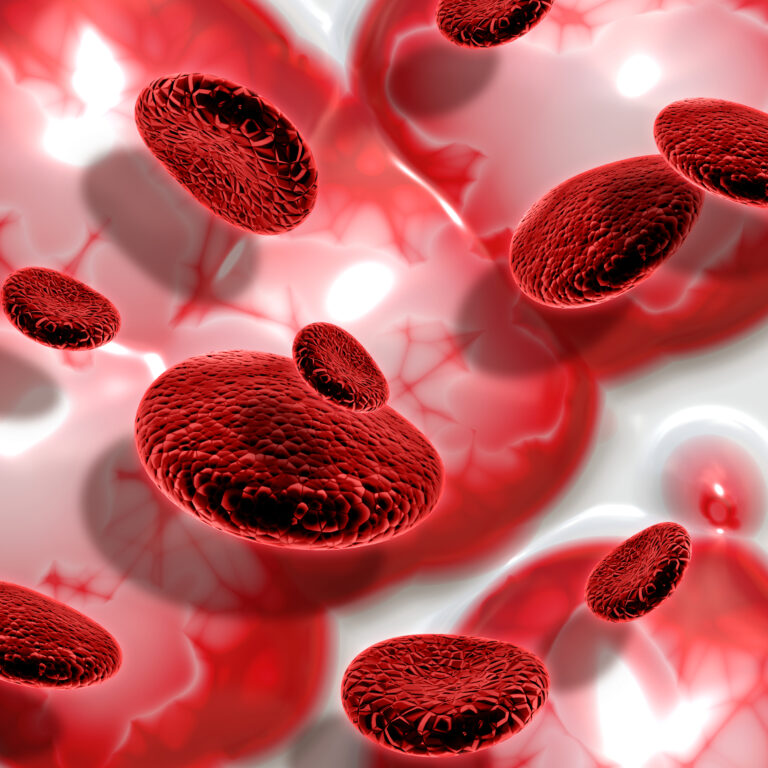
Image by kjpargeter on Freepik
Conclusion:
In conclusion, omega-3 fatty acids have shown potential benefits in cancer prevention and treatment due to their anti-inflammatory properties, ability to modulate signaling pathways, and inhibition of angiogenesis.
By maintaining a balanced ratio of omega-6 to omega-3 in the diet, individuals can support a healthy immune response and reduce the risk of chronic inflammation-related diseases, including cancer.
The incorporation of omega-3-rich foods or supplements, such as Zinzino’s BalanceOil+, may be a valuable addition to overall health and cancer care, but further research is needed to determine optimal dosage, timing, and potential synergistic effects with existing therapies.
While omega-3 fatty acids should not be considered standalone treatments for cancer, their inclusion in a comprehensive approach to treatment shows promise in enhancing the effectiveness of conventional therapies and improving patient outcomes.
